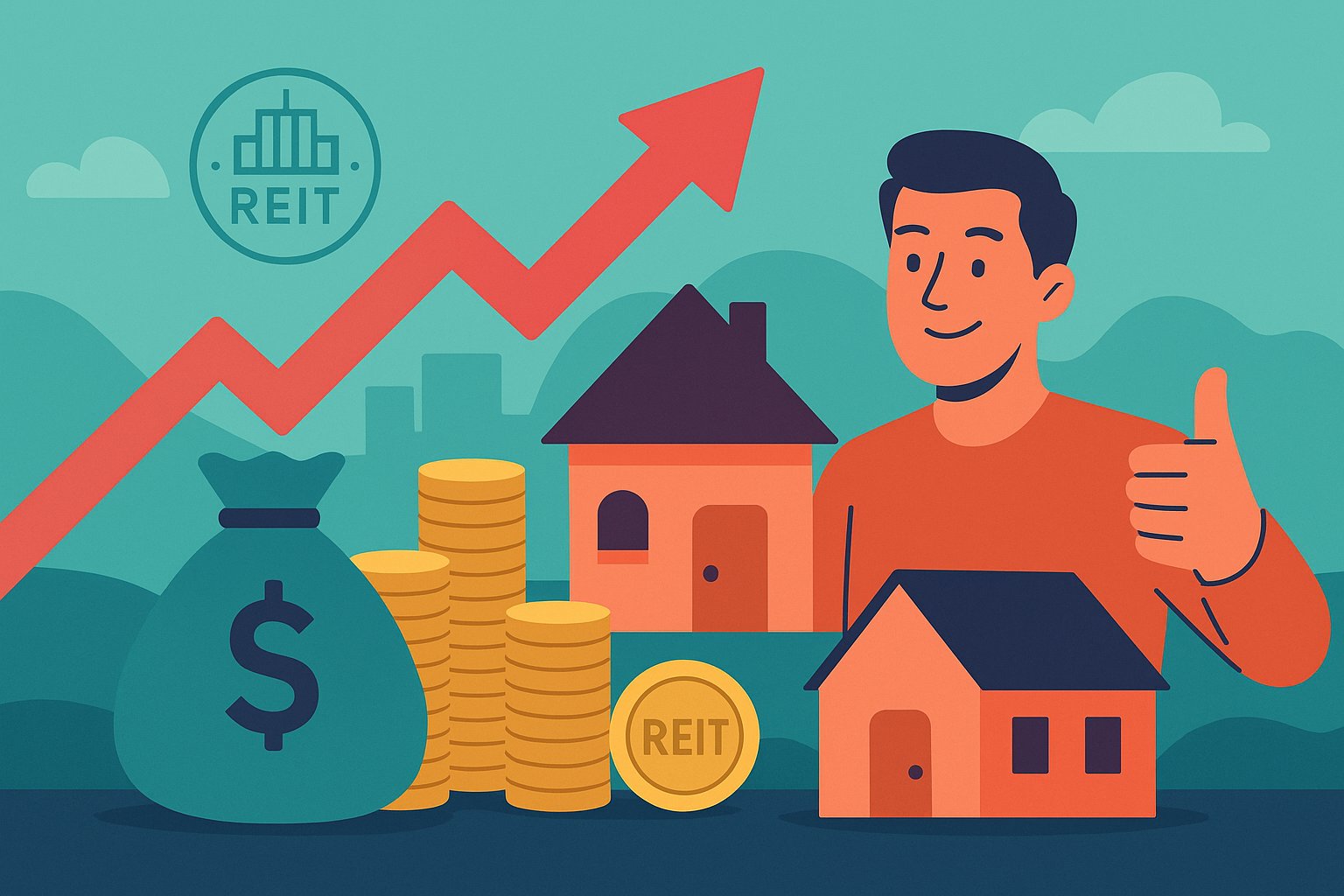Residential Real Estate: Your First Crowdfunding Leap
Residential property crowdfunding has transformed the real estate landscape, allowing first-time investors to participate in deals once reserved for institutions. No longer do you need deep pockets or hands-on landlord responsibilities to reap the benefits of rental income and property appreciation. Instead, digital platforms aggregate investor capital to acquire, manage, and exit residential properties—be they single-family rentals, multi-unit apartment buildings, or renovation projects—and distribute returns proportionally. This democratization invites newcomers to build wealth through real estate with minimal capital, guided by experienced sponsors who shoulder operational tasks. For first-time investors, understanding the mechanics and pitfalls of residential crowdfunding is the key to launching a successful portfolio that balances risk and reward.
Why Residential Crowdfunding Appeals to New Investors
One of the most compelling aspects of residential property crowdfunding is accessibility. Minimum investments often start as low as $5,000, widening the door for individuals who might lack the equity for a standalone rental. Digital onboarding streamlines KYC processes, deal selection, and funding, making the entire experience intuitive and fast. Moreover, crowdfunding platforms typically vet and curate opportunities, presenting beginner-friendly deals with clear pro forma models and defined exit strategies. Dividend distributions—driven by rental income or renovation profits—arrive quarterly or semi-annually, offering a predictable cash flow that can complement traditional savings or brokerage accounts. This blend of low entry barriers, professional management, and steady income makes residential crowdfunding an ideal starting point for novices to gain real estate exposure.
Choosing the Perfect Platform: Matching Your Goals
Not all crowdfunding portals are created equal. As a first-time investor, you should prioritize platforms with a strong track record, transparent performance histories, and responsive customer support. Established names in the space often display total assets under management, the number of deals closed, average hold periods, and realized investor returns. Pay attention to investment verticals: some platforms focus on value-add renovation flips, while others specialize in long-term rental communities or new construction. Examine user reviews and attend platform-hosted webinars to gauge sponsor expertise and communication style. Your ideal platform aligns with your risk tolerance, desired investment horizon, and preferred residential asset type—be it single-family homes in growth markets or suburban multi-unit dwellings offering predictable cash flows.
Deciphering Deal Listings: Key Metrics That Matter
When browsing residential crowdfunding opportunities, a handful of core metrics should guide your decision. Look at the projected annual yield or internal rate of return (IRR), but also scrutinize the underlying assumptions: average rent growth, vacancy rates, and renovation budgets. Debt-to-equity ratios reveal how much leverage sponsors employ; lower loan-to-value (LTV) thresholds typically translate to a larger equity cushion against market downturns. Rental yield projections hinge on local market fundamentals—employment trends, population growth, and supply-demand balances—so seek platforms that supply third-party market analyses. Lastly, understand the capital stack: equity-only deals offer pure upside but come with higher volatility, whereas preferred equity or mezzanine structures prioritize fixed distributions before equity gains accrue. By dissecting these elements, you’ll separate compelling listings from speculative pitches.
Crafting a Diversified Residential Portfolio
Even with limited capital, you can achieve diversification by allocating across multiple properties, markets, and investment structures. Spread your investments geographically—combining Sun Belt cities with strong job growth, Midwestern towns with stable housing demand, and coastal hubs driven by lifestyle factors. Mix asset types: single-family rentals may offer renovation arbitrage, while small apartment complexes provide income stability through multiple tenancy. Additionally, vary deal durations; pairing shorter-term fix-and-flip projects with longer-hold rental plays balances near-term distributions against long-term appreciation. Many platforms facilitate this diversification through model portfolios or automated investment products, enabling you to allocate predetermined percentages across dozens of deals. A diversified approach cushions against idiosyncratic risk—should one sponsor underperform or a local market soften, your broader portfolio remains resilient.
Evaluating Sponsor Quality: The Human Factor
Behind every deal is a sponsor team responsible for acquisition, financing, property management, and eventual disposition. As a first-timer, thoroughly vet sponsor credentials: years of experience, previous project performance, repeat partnerships with local brokers or contractors, and overall financial strength. Platforms often provide track records listing completed deals, realized IRRs, and lessons learned from challenges such as delayed permits or unexpected capex. A sponsor who proactively communicates issues and adjusts strategies demonstrates integrity and adaptability—critical traits in real estate. You may also request references or case studies for specific properties, giving direct insight into sponsor professionalism and operational rigor. In residential crowdfunding, your sponsor’s expertise can make the difference between a seamless investment and a drawn-out, underperforming project.
Mitigating Risk: Structural Safeguards and Strategies
Every investment carries risk, and residential crowdfunding is no exception. To protect your capital, seek deals with structural safeguards. Conservative loan-to-value ratios, interest reserves, and debt service coverage requirements bolster resilience against rent slumps or unexpected expense overruns. Renovation projects that hold contingency reserves for surprises—such as mold remediation or permit delays—demonstrate thorough underwriting. Diversifying across sponsors further reduces dependency on a single management team’s execution. Additionally, platforms that embed escrow services or third-party custodians for investor funds provide an extra layer of security. By prioritizing structural protections and a disciplined, diversified approach, you can navigate the inherent uncertainties of residential real estate with greater confidence.
Understanding Fee Structures: Crunching the True Costs
Fees quietly erode returns over time, making transparency essential. Residential property crowdfunding models typically include acquisition fees, asset management fees, and disposition fees. Some sponsors also impose refinancing or promote fees once hurdle rates are achieved. To gauge net returns, request a comprehensive fee schedule and calculate your total expense ratio. Compare these figures across similar deals to distinguish compelling opportunities from those burdened by opaque or excessive charges. In many cases, slightly higher fees can be justified by superior underwriting or sponsor expertise—provided that value is demonstrable. Always weigh fees against projected returns and competitor offerings, ensuring you retain a meaningful share of rental yields and appreciation.
Demystifying Legal Documents: What Every New Investor Should Know
Subscription agreements, operating agreements, and private placement memoranda form the legal backbone of residential crowdfunding deals. As a first-time investor, familiarize yourself with key clauses: redemption rights, default provisions, and transfer restrictions. Understand your voting rights—if any—and the sponsor’s authority to amend project terms without unanimous investor consent. Force-majeure and casualty clauses dictate how events like natural disasters or pandemics affect cash flows and distributions. While platforms often summarize critical points, consider consulting a real estate attorney for substantive deals or larger allocations. Gaining fluency in these documents helps you anticipate potential pitfalls and secures your position should unforeseen events unfold.
Tax Benefits and Reporting: Maximizing After-Tax Returns
Residential real estate investments can unlock tax advantages that boost after-tax yields. Depreciation deductions spread the cost of structural assets over 27.5 years for residential property, offsetting taxable rental income. Platforms issue K-1 forms detailing your share of income, depreciation, mortgage interest, and expenses. Be mindful of depreciation recapture upon asset sale and potential passive activity loss rules if your income exceeds certain thresholds. Some crowdfunding deals operate through self-directed IRAs or 1031 exchange–compatible structures, offering alternative tax-deferred or deferral strategies. Collaborate with a tax professional to integrate real estate crowdfunding investments into your overall tax plan, ensuring you harness the full spectrum of allowable deductions and optimize net cash flow.
Monitoring Performance: Staying Engaged as a Passive Investor
Although crowdfunding promises passive participation, staying informed is crucial. Platforms typically provide quarterly reports featuring rent rolls, occupancy rates, operating expenses, and distribution summaries. Sponsor communication—through emails, webinars, and investor portals—often includes renovation progress photos, leasing updates, and market commentary. Regularly compare actual performance against the original pro forma, noting variances in rent growth, expense outflows, and timeline adherence. Engaging with other investors via platform forums or social media groups can surface additional insights or raise questions for sponsors. By maintaining a pulse on each investment, even hands-off participants can identify emerging risks, celebrate milestones, and refine strategies for future deals.
Planning Exits and Liquidity: Aligning Horizons with Goals
Residential crowdfunding deals typically lock up capital for defined hold periods—commonly three to seven years—yet exit strategies can vary. Some sponsors plan refinances that return partial equity early, while others target outright property sales upon market peak. Understand your deal’s liquidity profile: redemption windows, secondary market access, or mandatory distributions upon refinance or sale. If near-term access to capital is critical, consider deals with scheduled cash sweeps or shorter hold durations. Balancing liquidity preferences with return expectations ensures that you maintain financial flexibility without sacrificing the benefits of long-term residential appreciation and rental income.
Mapping Your Residential Crowdfunding Roadmap
Becoming a savvy first-time investor in residential crowdfunding starts with education and incremental exposure. Allocate a modest slice of your investable assets—perhaps 5 to 10 percent—to your initial deals, varying platforms and property types to build a diversified foundation. Attend virtual site tours, dissect pro forma models, and engage with sponsor Q&A sessions. Over successive investments, refine your risk tolerance, develop sponsor preferences, and expand your allocation in line with both performance and cash flow needs. By progressively layering into multifaceted residential deals, you transform from a cautious beginner to a confident participant in the burgeoning world of real estate crowdfunding.
Empowering Your Investment Journey
Residential property crowdfunding offers a powerful avenue for first-time investors seeking passive income, capital appreciation, and portfolio diversification. Through careful platform selection, rigorous due diligence, structural risk mitigation, and active performance monitoring, you can navigate each deal with precision and foresight. Embrace the democratized access that crowdfunding provides, but equip yourself with the knowledge and strategies that seasoned investors rely on. As you embark on this transformative path, remember that every successful real estate portfolio started with a single, well-informed investment decision—yours begins today.




